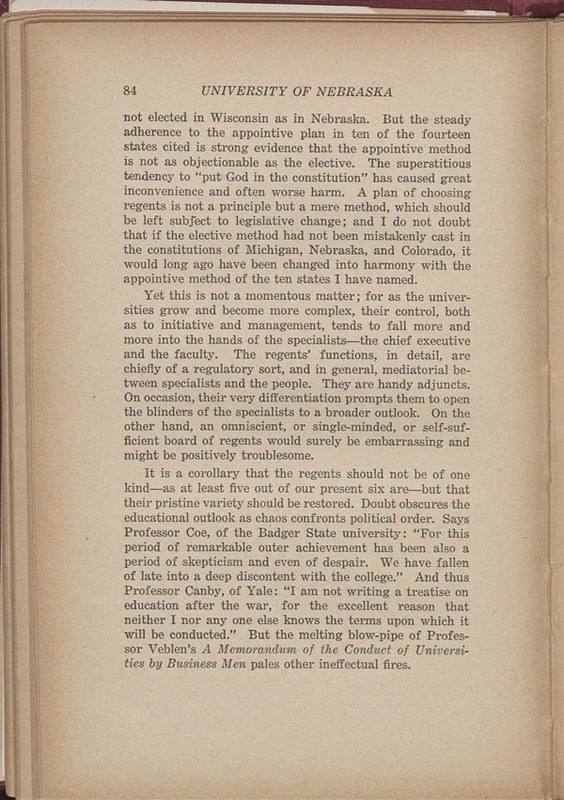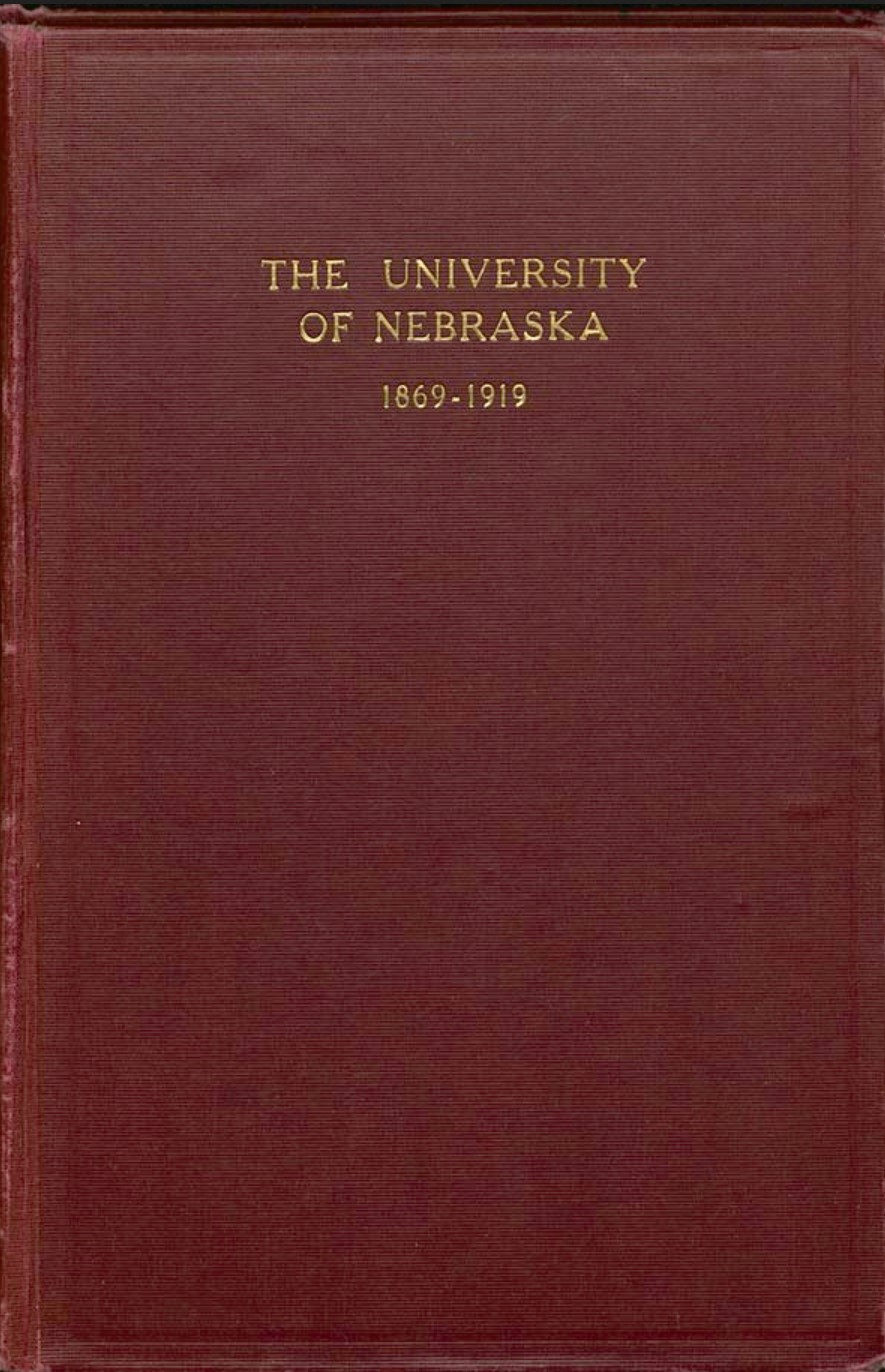088
Item
-
Title
-
088
-
Description
-
Semi-Centennial Anniversary Book: The University of Nebraska, 1869-1919
-
Transcription
-
not elected in Wisconsin as in Nebraska. But the steady adherence to the appointive plan in ten of the fourteen states cited is strong evidence that the appointive method is not as objectionable as the elective. The superstitious tendency to "put God in the constitution" has caused great inconvenience and often worse harm. A plan of choosing regents is not a principle but a mere method, which should be left subject to legislative change; and I do not doubt that if the elective method had not been mistakenly cast in the constitutions of Michigan, Nebraska, and Colorado, it would long ago have been changed into harmony with the appointive method of the ten states I have named.
Yet this is not a momentous matter; for as the universities grow and become more complex, their control, both as to initiative and management, tends to fall more and more into the hands of the specialists—the chief executive and the faculty. The regents' functions, in detail, are chiefly of a regulatory sort, and in general, mediatorial between specialists and the people. They are handy adjuncts. On occasion, their very differentiation prompts them to open the blinders of the specialists to a broader outlook. On the other hand, an omniscient, or single-minded, or self-sufficient board of regents would surely be embarrassing and might be positively troublesome.
It is a corollary that the regents should not be of one kind—as at least five out of our present six are—but that their pristine variety should be restored. Doubt obscures the educational outlook as chaos confronts political order. Says Professor Coe, of the Badger State university: "For this period of remarkable outer achievement has been also a period of skepticism and even of despair. We have fallen of late into a deep discontent with the college." And thus Professor Canby, of Yale: "I am not writing a treatise on education after the war, for the excellent reason that neither I nor any one else knows the terms upon which it will be conducted." But the melting blow-pipe of Professor Veblen's A Memorandum of the Conduct of Universities by Business Men pales other ineffectual fires.
-
Rights
-
To inquire about usage, please contact Archives & Special Collections, University of Nebraska-Lincoln Libraries. These images are for educational use only. Not all images are available for publication.



